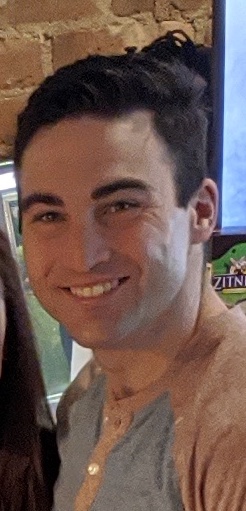As a nurse living in the U.S. city hardest hit by the COVID-19 infection, Trevor Glanville, Moravian ’14, felt compelled to help as the coronavirus shut down New York City. He’d watched as the virus spread at an alarming rate among the city’s eight million residents. In the weeks after its first confirmed case, the number of people known to be infected in the city’s five boroughs climbed to nearly 8,000. The city’s usual 24-hour hustle and bustle evaporated amid school closures and a stay-at-home order for all but essential businesses and personnel.
With the ambulatory surgery center where he worked temporarily closed, Glanville expressed interest in volunteering at Lenox Hill Hospital. He realized this would likely mean contact with COVID-19-positive patients and long hours — a huge contrast to his relaxed, 9-to-5 job assisting on elective procedures at the Manhattan Eye, Ear and Throat Hospital.
Due to the logistics of matching volunteers with hospitals, Glanville spent several days wondering if he’d even get called. His wife, who was concerned about his safety, was nervous that he would. Eventually, he was assigned to a unit at the hospital’s Greenwich Village facility for  patients who were ill, but didn’t have COVID-19.
patients who were ill, but didn’t have COVID-19.
But with that unit still under construction, he arrived for his first day of work to find that he’d been reassigned to the emergency department — which was treating patients who’d tested positive. That day, Glanville was only allowed to assist patients without respiratory issues because the medical-grade N95 masks didn’t fit properly over his beard. Despite his limited duties, the seriousness of the situation didn’t escape him: “Two patients in the unit died during my first shift, and another one overnight,” he shared.
With stakes that high, being restricted to working with a small subset of patients was less than ideal. So at the end of the shift, Glanville went home, shaved his beard and reassured his wife that he’d follow all safety guidelines.
Freshly shaved, Glanville was put to work helping more critically ill patients. In the weeks since, his combination of surgical and bedside experience has made him a highly valued member of the nursing staff. He has nursed patients who are too sick to be treated and are dying of COVID-19 and others with high blood pressure, sepsis and other underlying conditions that make treating the infection more complicated.
Despite the challenges of working with such critically ill patients, Glanville has found the experience rewarding. “I was ready to move on from the OR and had been wanting to experience something new. I’ve really valued my time in the emergency department,” he said. It has been such a life-changing experience that Glanville has accepted a job offer and will continue working in the Lenox Health Greenwich Village emergency department once the crisis subsides.
If you know of a brother or friend of SigEp working on the front lines of COVID-19, please help us recognize them by submitting this form.









Leave a Reply